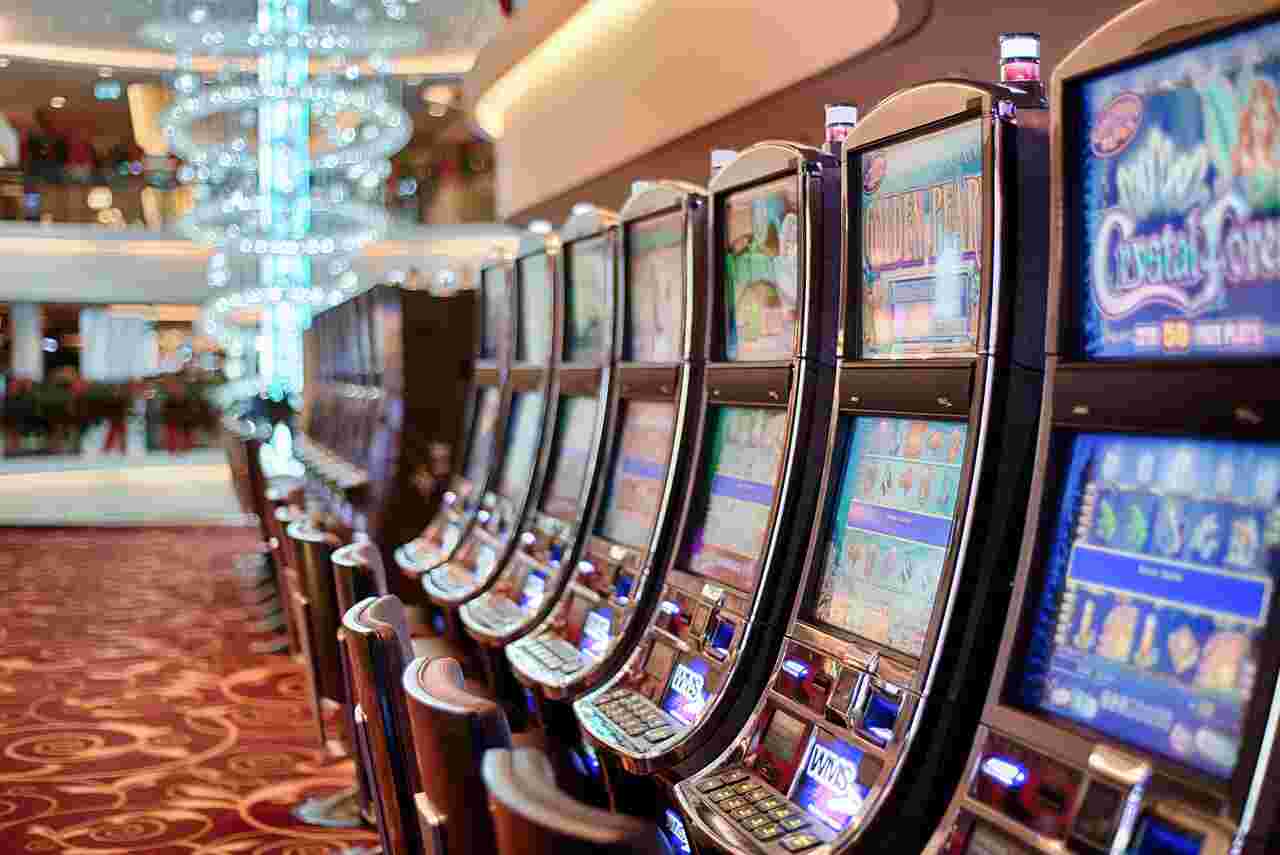
Let’s investigate further into the science behind these mesmerizing machines, shedding light on the psychological tactics employed by the gambling industry. Understanding the intricate relationship between human psychology and slot machines (and slot online) is crucial in addressing the issue of gambling addiction effectively.
The Allure of Slot Machines
The Excitement of Chance
Slot machines are designed to capture our attention and ignite our excitement. The flashing lights, mesmerizing sounds, and the anticipation of a potential win create a thrilling atmosphere. The allure of chance is one of the primary driving forces behind the popularity of slot machines. Each spin holds the promise of a life-changing jackpot, tapping into our innate desire for risk and reward.
Sensory Stimulation and Reinforcement
The sensory experience of playing a slot machine is carefully crafted to captivate our senses. Bright colors, bold graphics, and enticing visual themes are strategically chosen to grab our attention. The constant stream of auditory cues, such as ringing bells and celebratory jingles, intensify the emotional response to wins, whether big or small.
Slot machines also employ a powerful psychological tool called intermittent reinforcement. Unlike other forms of gambling, such as table games where the outcome is clear and immediate, slot machines operate on a variable ratio schedule of reinforcement. This means that the rewards are unpredictable and can occur after a varying number of spins. This uncertainty creates a heightened sense of excitement and anticipation, keeping players engaged and wanting more.
The Impact on the Brain
Dopamine and the Reward System
The allure of slot machines lies in their ability to manipulate our brain’s reward system. The act of gambling triggers the release of dopamine, a neurotransmitter associated with pleasure and reward. When a player wins, the brain experiences a surge of dopamine, reinforcing the behavior and creating a sense of euphoria. Over time, this dopamine release becomes strongly associated with the act of playing the slot machine, leading to the development of addictive patterns.
The Role of Near-Misses
One particularly potent psychological trick employed by slot machines is the use of near-misses. A near-miss occurs when the symbols on the reels align in a way that is close to a winning combination but ultimately falls short. These near-misses keep players engaged by creating a false sense of hope and prolonging the anticipation of a win. Studies have shown that near-misses trigger a heightened response in the brain, activating the same reward pathways as actual wins. This phenomenon contributes to the addictive nature of slot machines, as players interpret near-misses as a sign of being “almost there.”
Vulnerability to Gambling Addiction
The Role of Psychology
While not everyone who plays slot machines develops a gambling addiction, certain psychological factors can increase vulnerability. Individuals with a predisposition to sensation-seeking behavior, those who struggle with impulse control, and those seeking an escape from negative emotions are particularly at risk. Moreover, social and environmental factors, such as the normalization of gambling in society, can contribute to the development of addictive behaviors.
The Cycle of Addiction
For individuals susceptible to gambling addiction, a dangerous cycle can unfold. The initial thrill of playing the slot machines can quickly escalate into a compulsive need to chase losses or recapture the euphoria of past wins. The allure of the game becomes irresistible, leading to financial difficulties, strained relationships, and a decline in overall well-being. Breaking free from this cycle requires a comprehensive understanding of the psychological mechanisms at play and a commitment to seeking help.
Addressing Gambling Addiction
Promoting Awareness and Education
Raising awareness about the psychology of slot machines and the risks of gambling addiction is crucial in combating this issue. By understanding the underlying psychological tactics used by the gambling industry, individuals can make informed decisions and recognize the signs of addictive behavior. Education campaigns and public service announcements play a vital role in disseminating this information to the general public.
Support and Treatment Options
For those already struggling with gambling addiction, seeking support is essential. There are various treatment options available, including counseling, support groups, and helplines specifically dedicated to assisting individuals affected by gambling addiction. Recognizing the problem and reaching out for help is the first step towards recovery.
Read also: Why Do Some People Like To Gamble?
Conclusion
In conclusion, the psychology behind slot machines plays a significant role in the development and perpetuation of gambling addiction. The allure of chance, the sensory stimulation, and the manipulation of our brain’s reward system contribute to the addictive nature of these machines. By understanding the psychological tactics employed by the gambling industry, we can promote responsible gambling practices and provide support to those affected by addiction. It is crucial for individuals, society, and the industry itself to recognize the impact of these machines and work towards creating a safer and more informed gambling environment.
